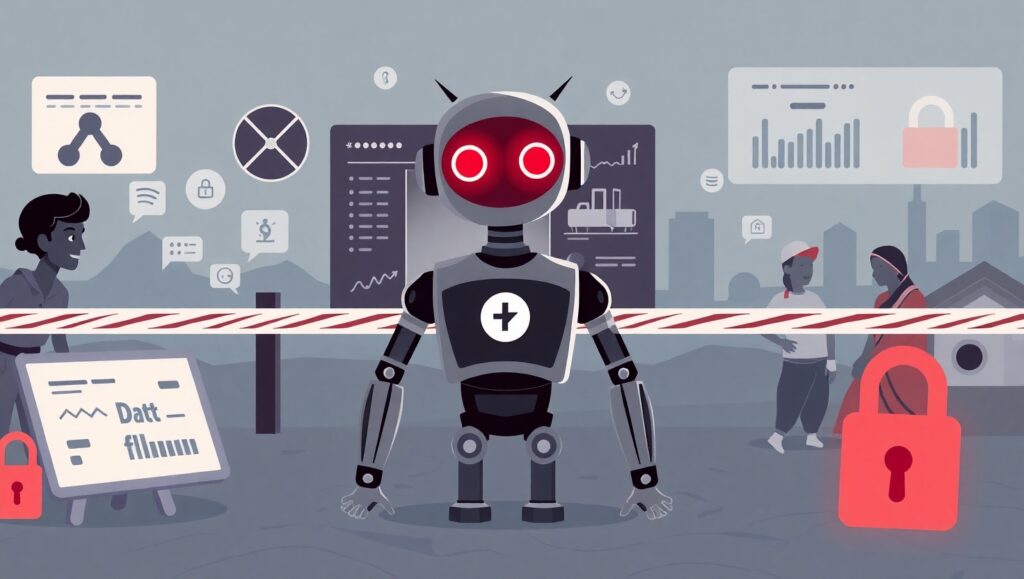Introduction
The education landscape in India has undergone a remarkable transformation in the last decade, and artificial intelligence (AI) is now playing a central role in shaping the future of learning. Indian startups are at the forefront of this shift, using AI to deliver personalized, efficient, and scalable education solutions. This article explores how AI is redefining education in India through the innovation and vision of startups, while also examining the challenges and opportunities they face.
The Rise of AI in Indian Education

With over 250 million school-going students, India is home to one of the largest education systems in the world. However, it also faces significant challenges—lack of qualified teachers, urban-rural disparities, and a rigid one-size-fits-all curriculum. AI offers a powerful solution to these issues by enabling personalized and adaptive learning experiences.
Startups in the EdTech space are leveraging AI to:
- Customize learning content
- Automate administrative tasks
- Offer real-time feedback
- Predict student performance
- Enhance teacher effectiveness
Leading Indian Startups Using AI in Education
1. BYJU’S
One of the most recognized names in Indian EdTech, BYJU’S uses AI to track student progress and adapt lessons accordingly. Its recommendation engine suggests topics that need more focus based on individual performance.
2. Embibe
Embibe uses AI-powered data analytics to understand student behavior, learning patterns, and knowledge gaps. Their platform offers performance predictions and suggestions to improve scores.
3. Vedantu
Vedantu’s WAVE (Whiteboard Audio Video Environment) platform integrates AI to ensure student engagement during live classes. The system tracks attentiveness, participation, and suggests improvements.
4. Classplus
Focused on enabling educators to go digital, Classplus uses AI to automate class management, communication, and student performance tracking.
5. Leverage Edu
This startup uses AI to help students make informed decisions about higher education. From career guidance to personalized college recommendations, AI algorithms power the entire journey.
How AI Is Changing the Learning Experience

Personalized Learning
AI allows content to be tailored to each student’s pace, learning style, and proficiency. Adaptive assessments and intelligent tutoring systems help in bridging learning gaps more efficiently than traditional methods.
Smart Content Delivery
Startups are using Natural Language Processing (NLP) and computer vision to develop smart content like:
- AI-generated quizzes
- Interactive video lectures
- Real-time translations for regional language learners
Virtual Tutors and Chatbots
AI-driven chatbots can answer student queries 24/7, reducing dependency on human tutors. These virtual assistants can guide students through lessons, exams, and even help with time management.
Gamified Learning
Gamification powered by AI algorithms increases engagement and retention. Personalized challenges, leaderboards, and reward systems are dynamically adjusted based on student performance.
AI in Teacher Empowerment
AI is not just for students—it’s also helping teachers:
- Identify struggling students through performance analytics
- Automate grading and feedback
- Get AI-driven content recommendations based on syllabus and student needs
Platforms like Teachmint are empowering educators with AI tools to manage classrooms more efficiently and reach students in remote areas.
Addressing Language and Accessibility Barriers
India’s linguistic diversity poses a challenge for uniform education. AI tools are being trained in regional languages to:
- Translate content
- Offer voice-to-text support
- Enable voice commands for differently-abled learners
Startups like Reverie Language Technologies are pioneers in making digital content accessible across India’s many languages.
AI and Career Guidance
Startups like Mindler and Leverage Edu use AI to analyze a student’s aptitude, interests, and market trends to recommend suitable career paths. AI-powered psychometric tools help students understand themselves better and plan for future careers.
Challenges Faced by AI-Driven EdTech Startups

1. Data Privacy Concerns
As AI relies heavily on data, ensuring the safety and privacy of student information is critical. Startups must comply with data protection regulations and ethical standards.
2. Digital Divide
While urban areas benefit from advanced EdTech, rural and underprivileged regions still face issues like lack of internet access, digital devices, and tech literacy.
3. High Development Costs
Building and maintaining AI infrastructure is expensive. Many startups face funding challenges, especially in their early stages.
4. Resistance to Change
Traditional educators and institutions may resist adopting AI-based tools due to lack of familiarity or fear of job displacement.
The Road Ahead
The integration of AI in education is still evolving. Future trends include:
- Emotion AI to detect student stress or confusion in real time
- Multilingual AI tutors
- Augmented and Virtual Reality with AI for immersive learning experiences
- Blockchain for secure certification
Indian government initiatives like the National Education Policy (NEP) 2020 support the adoption of technology in education, creating a favorable ecosystem for AI-based learning solutions.
Conclusion
Indian startups are playing a transformative role in making education more inclusive, engaging, and effective through AI. From personalized learning paths to automated assessments and smart content delivery, AI is revolutionizing how students learn and teachers teach. While challenges exist, the ongoing innovation and growing support from both public and private sectors signal a bright future for AI in Indian education.
As the technology matures and becomes more accessible, AI-powered education has the potential to bridge learning gaps, empower educators, and prepare the next generation of students for a smarter, more connected world.
Disclaimer:The content provided in this blog post is for informational purposes only. The opinions expressed here are those of the author and do not necessarily reflect the views or opinions of Business Rahi. While we strive to ensure the accuracy and reliability of the information presented, we cannot guarantee the completeness, reliability, or suitability of the content for any particular purpose. Any reliance you place on such information is strictly at your own risk.
Buisiness Rahi is not responsible for any losses or damages arising from the use of the information shared in this blog post. We may feature links to external websites, but these do not constitute endorsements or recommendations. We encourage readers to conduct their own research and consult with professionals before making any business decisions.
For more information about our brand or policies, please refer to our official website or contact us directly.

